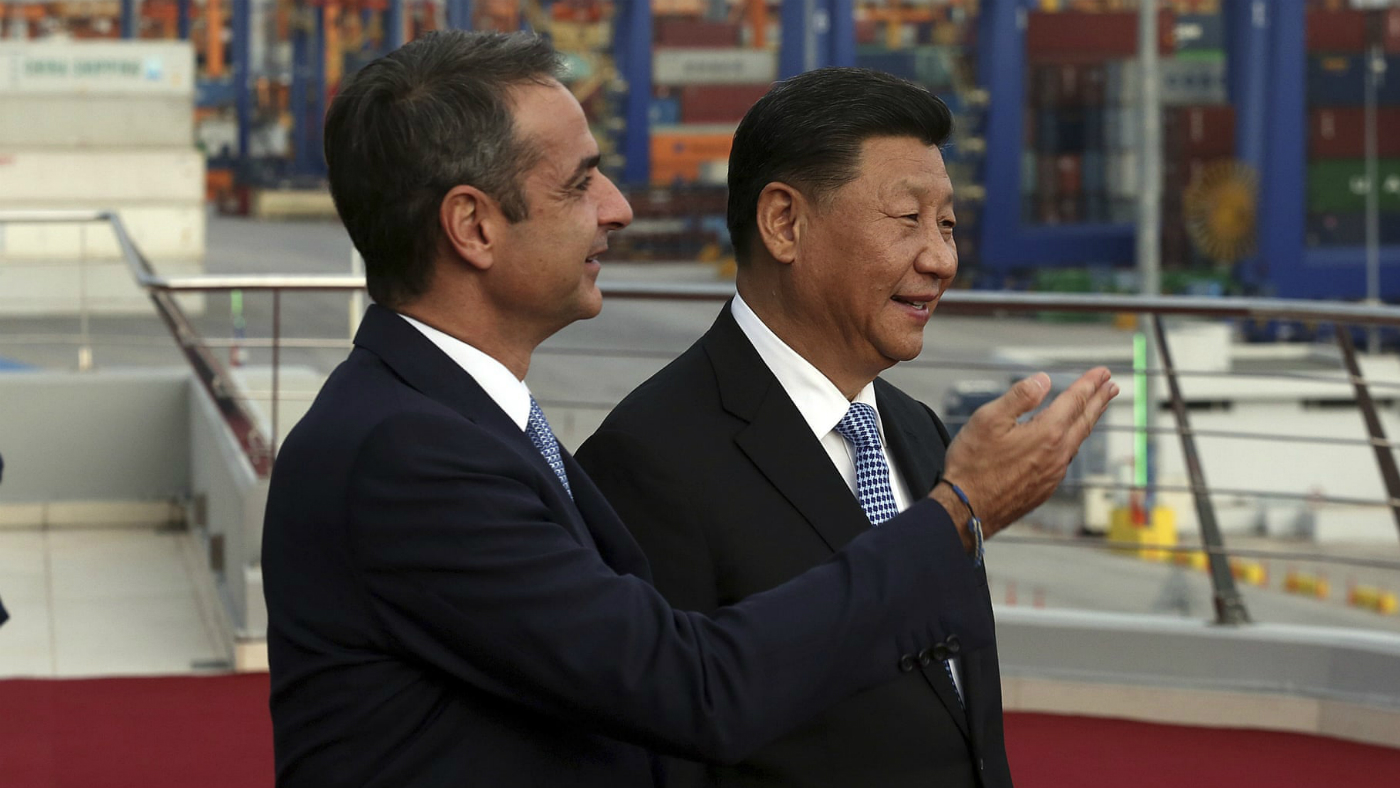Why China has its eyes on Greece
Western powers wary as Athens agrees further investment from Beijing

A free daily email with the biggest news stories of the day – and the best features from TheWeek.com
You are now subscribed
Your newsletter sign-up was successful
New Chinese investments in Greece totalling billions of euro have been announced during a visit by the Asian superpower’s President Xi Jinping to Athens this week.
On Monday, the two countries signed 16 new bilateral agreements covering a “broad range of sectors”, as China seeks to “further a major global investment initiative inside the European Union”, reports Japan’s English-language newspaper The Mainichi.
Xi says his three-day visit is aimed at achieving “deeper cooperation with Greece in all sectors”, but leaders in other European nations and the US are “wary of Beijing’s agenda”, says The Guardian.
The Week
Escape your echo chamber. Get the facts behind the news, plus analysis from multiple perspectives.

Sign up for The Week's Free Newsletters
From our morning news briefing to a weekly Good News Newsletter, get the best of The Week delivered directly to your inbox.
From our morning news briefing to a weekly Good News Newsletter, get the best of The Week delivered directly to your inbox.
What have China and Greece agreed?
The agreements signed by the two countries this week cover sectors ranging from energy, education and agriculture to the airline industry and shipping.
According to The Sydney Morning Herald, the deals will “open up more of Greece’s economy to Chinese investment, at a time when the European Union has been expressing concern over the political and economic implications of China’s ‘Belt and Road’ initiative building new trade routes to the West”.
Greek Prime Minister Kyriakos Mitsotakis, who recently visited Shanghai, said that “the road we are opening will soon become a highway” and that his country and China were “inaugurating a new era in our relations”.
A free daily email with the biggest news stories of the day – and the best features from TheWeek.com
Al Jazeera says the “most important” of the newly signed deals are those relating to Chinese energy investments in Greece, particularly the establishment of an Athens branch of the Industrial and Commerical Bank of China to finance renewable energy projects.
Another significant deal “facilitates a 50-megawatt solar power station on the island of Crete being built with technical expertise from the China Energy Engineering Group”, the broadcaster adds.
Why is Europe nervous?
Greece’s relationship with China has been a worry for the EU for a number of years.
Angry over harsh austerity measures imposed on Greece through the eurozone, Athens turned to Beijing for support during the anti-austerity Syriza government from 2015.
Al Jazeera reports that Syriza tried “to fund the government through large-scale lending” from China, in a bid to “counterbalance the leverage held by the eurozone, which owns about two-thirds of Greek debt”.
Greece has also cosied up to China on political matters.
In June 2016, Greece blocked a joint EU statement calling on China to respect the International Law of the Sea. The following year, Athens also refused to endorse an EU statement calling on China to respect freedom of speech.
The vetoes were “startling” given that Greece has “consistently called upon others, especially neighbouring Turkey, to respect international maritime law and human rights”, says Al Jazeera.
Although Syriza has since been replaced with the more Western-oriented New Democracy party, the EU has remained wary about the strengthening Chinese ties - and the signing of the new trade deals this week has fuelled suspicions further.
The agreement that has raised the most eyebrows in Europe concerns a €600m (£515m) investment in the Greek shipping port of Piraeus.
China’s state-owned shipping company Cosco won a 35-year concession to manage cargo piers at the port in 2009, fuelling “fears of China’s spreading influence” - and the new investment “is aimed squarely at accelerating Piraeus’ role as a hub for Chinese containers that can now save millions in shipping costs travelling from Asia to Europe via the Suez Canal”, says The Guardian.
During a visit to Athens last month, US Secretary of State Mike Pompeo warned against accepting Chinese deals that look “too good to be true”.
The superpower was “using economic means to coerce countries into lopsided deals that benefit Beijing and leave its clients mired in debt”, he claimed.
Pompeo also urged Athens not to buy 5G technology from China, claiming that Beijing was “showing up to provide maybe a telecommunications network because you want your Communist Party to be able to steal all the information that going to move across that network”.